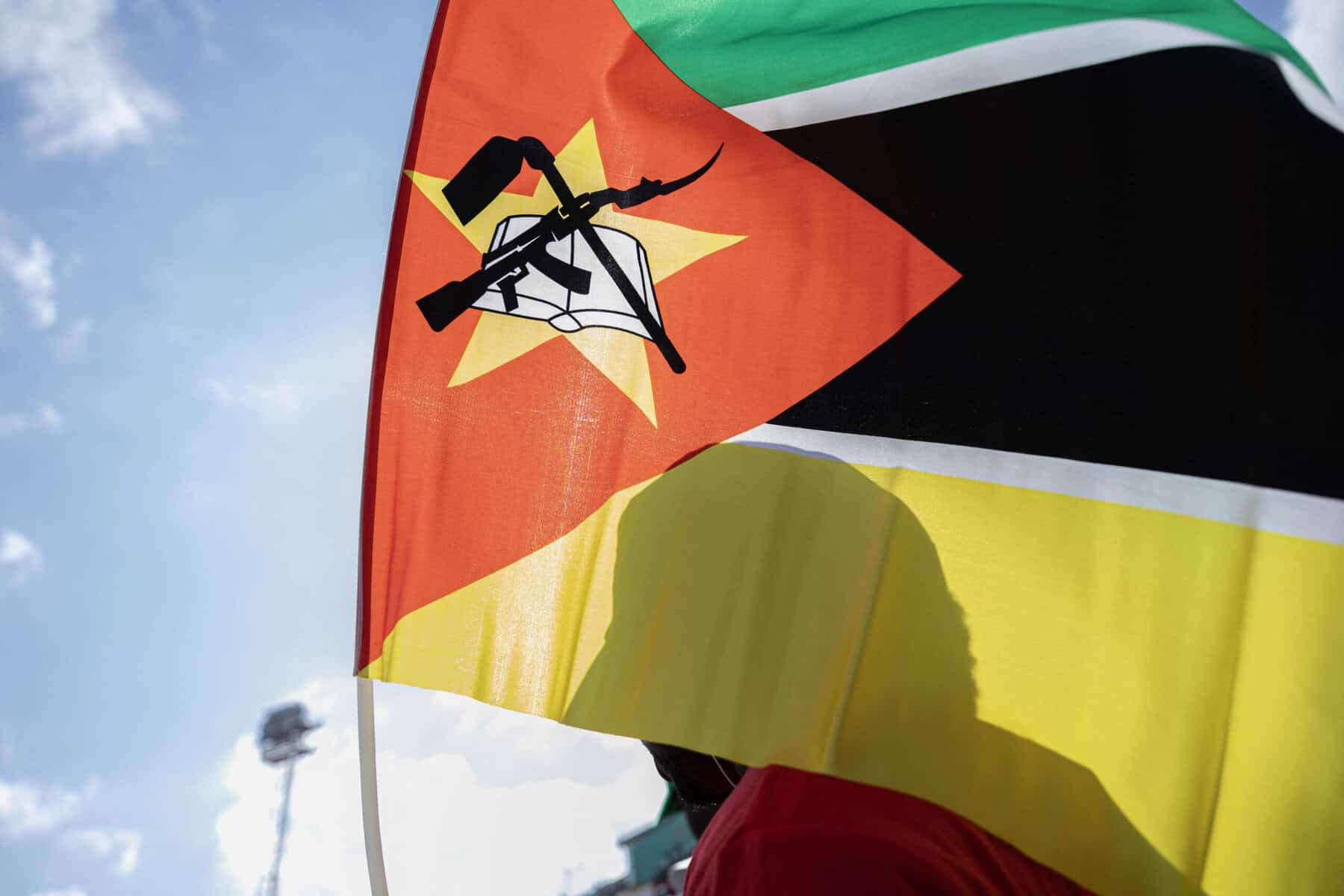
A supporter of the Mozambican Liberation Front (FRELIMO) party stands behind a Mozambique flag during the 50th anniversary celebration of Mozambique's independence at Machava Stadium, Maputo, on June 25, 2025. (Photo by ALFREDO ZUNIGA / AFP)
The United Nations said Tuesday it was deeply concerned about the numbers of civilians fleeing violence in northern Mozambique, with many driven to the point of no return.
The UN refugee agency said more than 100 000 people have been forced to flee their homes since the start of the year, with nearly 22 000 people fleeing in a single week in late September.
Civilians deliberately targeted in Mozambique conflict
“What we have witnessed over the last two weeks is extraordinary human suffering,” UNHCR’s Mozambique representative Xavier Creach told reporters in Geneva, speaking from the Mozambican port town Pemba.
“Civilians are no longer collateral victims in this conflict: now they are directly targeted,” he said.
Renewed attacks have been reported in recent months in Cabo Delgado province, where an insurgency has been raging since 2017.
Insurgents linked to the Islamic State jihadist group attacked the key Mozambique port town Mocimboa da Praia last month, clashing with troops and beheading civilians.
“The level of psychological distress is extremely moving and concerning,” Creach said, decrying forced recruitment of children and sexual violence.
Displacement reaches breaking point
He said the violence had escalated sharply this year, with well over 500 recorded security incidents affecting civilians — higher than any previous year — including raids on villages, abductions, killings and looting.
ALSO READ: Eswatini to accept 11 more deportees from the United States
“The recent surge in violence marks a turning point in northern Mozambique,” Creach explained.
“After years of uncertainty, families are reaching their limit as some stay despite the danger, and others flee again with little hope of return.
Creach said that since the conflict began in 2017, more than 1.3 million people had been displaced.
He said 89 percent of the newly displaced had already been displaced before.
“We have heard again and again, ‘we will never be displaced again….now we stay where we are’,” he said.
Meanwhile, 22 humanitarian organisations had been forced to close operations in Cabo Delgado this year, complicating the response.
“We are really struggling and we are in an invisible crisis,” Creach said.
NOW READ: Palestinians flee Gaza City as Israeli tanks, jets bombard urban hub



